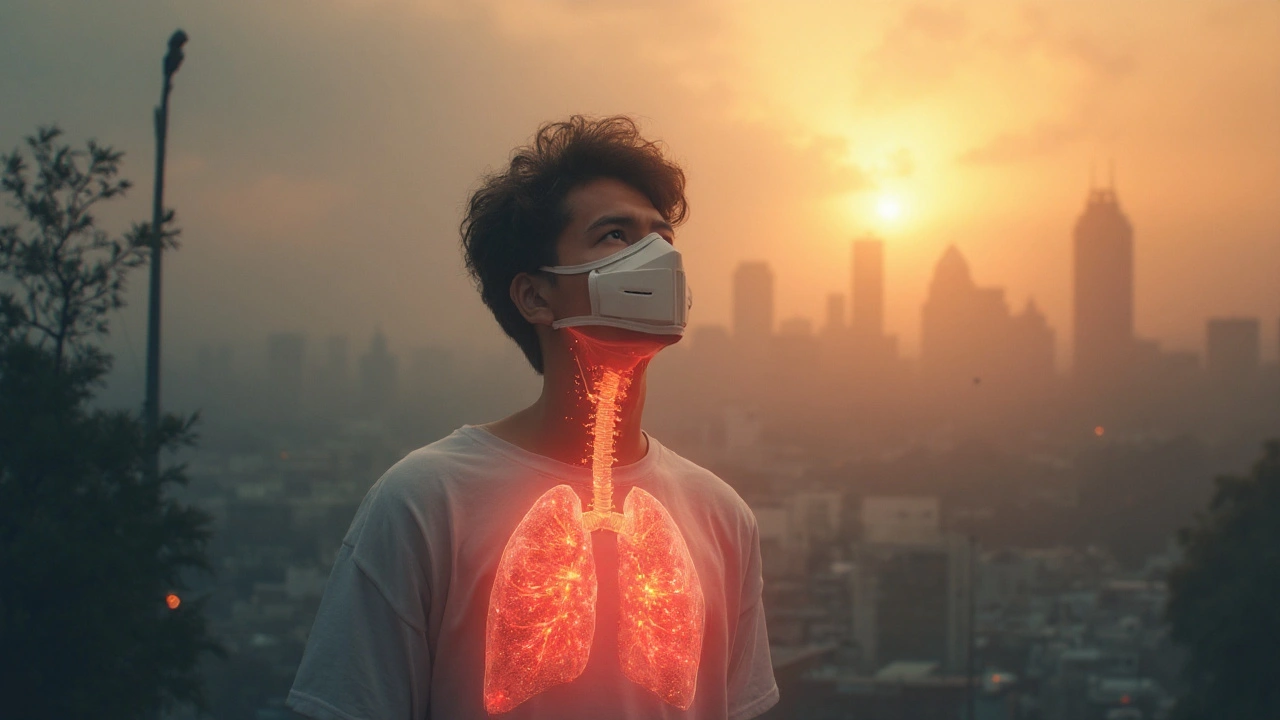Air Pollution and Your Health: Quick Facts & Action Steps
Ever wonder why your throat feels scratchy on a smoggy day or why asthma attacks flare up during traffic jams? That’s air pollution talking. Tiny particles and gases slip into the lungs, trigger inflammation, and can make everyday breathing feel harder. The good news? You don’t have to become a hermit to stay safe. Small changes at home, work, and on the go can cut your exposure and keep your lungs happier.
Why Air Pollution Matters
Air pollution isn’t just an eyes‑wide‑open issue for climate nerds. It’s a daily health risk that adds up fast. Particulate matter (PM2.5 and PM10) can travel deep into the lungs, cross into the bloodstream, and raise the chance of heart problems, headaches, and chronic cough. Gases like ozone and nitrogen dioxide irritate airways, making allergic reactions worse. Studies show people who live in high‑pollution zones have higher rates of asthma, COPD, and even reduced lung capacity.
For folks already dealing with respiratory conditions, the impact is even sharper. Medications like inhalers, bronchodilators, or supplements such as Lungmoss can help, but avoiding the trigger in the first place is the smartest move. Think of it like protecting a car—regular maintenance helps, but keeping it out of the mud makes it last longer.
Practical Ways to Protect Yourself
Here are some easy habits you can start today:
- Check the air‑quality index. Apps and local news give real‑time AQI numbers. If it’s above 100, limit outdoor workouts and keep windows closed.
- Use indoor air purifiers. A HEPA filter can pull out most particles and improve breathing comfort, especially in bedrooms.
- Ventilate wisely. Open windows early in the morning or late at night when traffic is light. Avoid ventilation during rush hour.
- Mask up when needed. A simple N95 or KN95 mask filters out most pollutants. Keep one in your bag for unexpected high‑pollution days.
- Stay hydrated. Water helps thin mucus, making it easier for the body to clear out irritants.
- Consider antioxidant‑rich supplements. Products like Lungmoss contain compounds that can reduce inflammation caused by pollutants. Always talk to a pharmacist or doctor before adding a new supplement.
At work, try to position your desk away from windows that face heavy traffic. If you’re a commuter, driving with windows up and the recirculate setting on can keep cabin air cleaner.
Lastly, remember that community action matters too. Supporting green spaces, using public transport, or advocating for stricter emission rules helps lower overall pollution levels. Your personal steps protect you, and collective effort protects everyone.
Air pollution may feel out of our control, but everyday choices give you power over how much of it reaches your lungs. Keep an eye on the AQI, use simple tools like masks and purifiers, stay hydrated, and think about supportive supplements. By staying aware and proactive, you’ll breathe easier and keep your health on track.
How Air Pollution Triggers Bronchospasm: Risks, Mechanisms, and Prevention
Explore how air pollution provokes bronchospasm, the underlying mechanisms, vulnerable groups, and practical steps to protect lung health.

